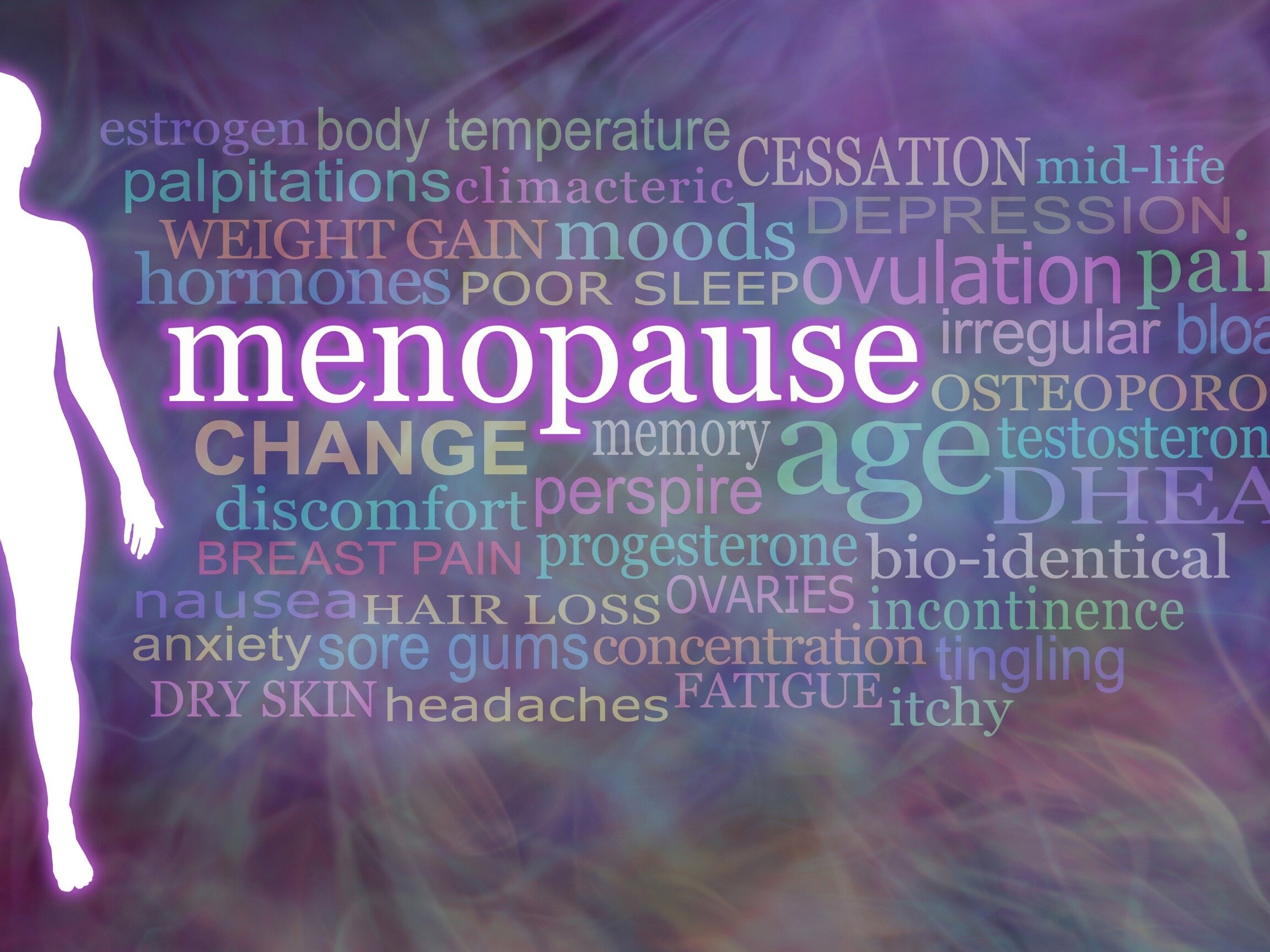What we know about Menopause…
Menopause is inevitable - it happens to all of us. If you’re one of the lucky ones, you may well sail through it like a yacht cruising around the Bahamas. But most of us aren’t as fortunate and when it strikes, it can hit like a pint in the face from Peggy Mitchell or slowly creep up on us with the rest of those ‘fine’ lines.
Most women start menopause between the ages of 45 and 55 and almost all will experience a whole rollercoaster of symptoms, from hot flushes to brittle nails. Some of the most common symptoms include:
Hot flushes
A rush of heat over the upper body and face which affects around 80 per cent of women and does not feel dissimilar to what the inside of a furnace would feel like. Typically lasts between 30 seconds and 10 minutes, often accompanied by heavy sweating, dizziness, shaking and a fetching red blotchy face
Night Sweats
Nocturnal hot flushes; much the same affect but with the additional disadvantage of hellish nights of sleep which leave us feeling tired, grumpy and that ‘can’t face the day ahead’ feeling.
Irregular periods
Fluctuations in hormones cause fluctuations in periods, which more or less means we are all kept on our toes for quite a few months.
Weight Gain
Baffling over an ever-expanding midriff, despite all of your healthy eating efforts? Weight gain doesn’t necessarily go hand in hand with menopause but the impact of reduced oestrogen can reduce the metabolic rate, as well as causing the body to use starches and blood sugar less effectively.
Problems Sleeping
Lower levels of progesterone, exacerbated by night sweats, new aches and joint pains, can make it hard to fall and stay asleep.
Irritability
If you’ve found yourself hissing ‘would you just shut up’ at some unsuspecting member of your household who has committed a minor offence which wouldn’t normally bother you at all, you are not alone! Menopause is linked to mood swings and increased irritability, due to imbalanced and declining levels of oestrogen and progesterone.
Depression
In more extreme cases, these changes can lead to depression and overwhelming anxiety. Depression is four times more likely to affect women of menopausal age and some women may experience depression for the first time in their lives.
Foggy Brain and memory lapses
Forgetting all sorts of things e.g. where you put the car keys, what you went upstairs for, your child’s birthday etc? Oestrogen stimulates neurotransmitters in the brain, so fluctuating hormone levels can slow down these neurotransmitters, causing that foggy brain feeling.
Headaches
Menopause can have a huge impact on headaches and migraines, particularly if you’re already a sufferer.
Allergies
Some of us may develop new allergies, or experience an intensity of existing allergies because changing hormone levels can weaken our immune system, making us more sensitive to certain allergens. So if that hay fever is worse than ever, you can probably blame that on the menopause too.
Joint pain
New joint pains are always alarming, but they don’t necessarily mark the onset of rheumatoid arthritis or osteoporosis. A lack of oestrogen affects the joints, ligaments and tendons causing tension, swelling and stiffness, so those creaking joints could be related to menopause.
Fatigue
Menopause brings with it a whole new cycle of exhaustion which can reduce even the bounciest of duracell bunnies to needing a nap. Hot flushes, insomnia, joint pains, combined with the hormonal fluctuations which compromise the regulating of cellular energy, can leave us feeling exhausted.
These are just a few of the whopping 34 recognised symptoms of menopause (and who knows how many more?). Whilst we can’t slow the whole process down or stop it all together (if only!), nearly every study published on the subject of menopause maintains that exercise can help us feel better. When the body begins ramping things down, it can reduce the amount of stress produced in the long term, and encourage the production of encephalins and endorphins. Regular stretching can help release tension and encourage blood circulation, helping to alleviate symptoms such as random pins and needles or tingling hands. Strength training is especially good to increase our muscle mass and strengthen the body . More muscle mass increases our metabolism now that can’t be bad thing, Planks are looking inviting now! Whilst jumping up and down during ballet cardio is probably the last thing any of us want to do when we’re gripped by fatigue, it is a great way to boost energy levels. And it also makes the large glass of wine afterwards so much more enjoyable.

